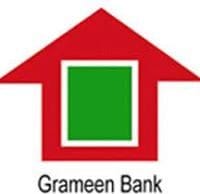Big Bang for a Small Buck
“We’re looking at the free-enterprise system in a completely different way to make it help the poor.” -MUHAMMAD YUNUS
Muhammad Yunus is the founder of the Grameen Bank. an innovative lending institution that makes small, uninsured loans to poor. self-employed women in Bangladesh. An economist with a doctorate from Vanderbilt Universitv. Yunus, 56, was a prime mover behind the international microcredit conference held in Washington last week the hopeful launch of a nine-year outreach campaign that would make small loans available to 100 million of the world’s poorest families. He spoke with NEWSWEEK’s Vibhuti Patel in New York. Fxcerpts:
PATEL: Why does Grameen make loans only to women? What
about men?
Yunus: Initially we tried to find equal numbers of men and women
borrowers. It was difficult because women did not want to join: they were
scared to borrow money We encouraged them to think it over, and
gradually they came round to borrowing from Grameen Bank. It took us six
years to get to a 50-50 ratio of men and women borrowers. Then we found
that manv positive things could be achieved by lending to women. because
when a woman’s income increases. the immediate beneficiaries are the
children. A woman looks to the future with a planned strategy to improve
the family situation. Men don’t pay attention to such things. Since women
performed better in bringing changes to the family, we decided to give
priority to women. Today 94 percent of our borrowers are women.
What about the husbands?
At first. our giving money to women created a lot of tension. Men. were
angry with their wives for handling money. We tried to show them that it is
good if the wife contributes to the family income, that way the family could
move out of poverty faster. We tried to get men to support the idea. The
first year is critical because it’s a new experience. So that the husband does
not feel humiliated that his wife gets the money, we have [counseling]
sessions with him and encourage the wife to discuss things with him so he
does not feel left out. We also have groups for the wives teaching them how
to protect the money and protect the marriage so that they do not have to
give up one for the other-money for the marriage or marriage for the
money.
Why as the microcredit concept not been popular with your
neighbors, India and Pakistan?
First, they were not sure whether this would really work. It’s the mind-set of
the banking community and academic who think of this as a fad that will
disappear, that this cannot work because it runs against the grain of
everything that’s done. When they see that this is people helping themselves,
changing their lives, they will have to accept it.
What are the implications of microcredit for the United States?
It’s a strange situation – the richest country in the world still having extreme
poverty. In Bangladesh. people can be poor and still have dignity because
so many are in the same boat. They don’t feel they are victims of society’s
neglect. The world has learned to cope with poverty, only one way-through
charity. But charity does not change the situation; it sustains poverty
Can microcredit help Americans on welfare?
It can be done. The market niche is there. There are over 200 programs
working in the United States right now. And people find their own thing;
they borrow money, they get into business. People will come up with ideas
on what they can do. Even in an industrialized society, there are gaps in the
economy that can be filled by people with initiative.
The Clintons are your fans?
Both of them are great supporters because they have experienced
microcredit for themselves. As governor of Arkansas, Bill Clinton initiated
the Good Faith Fund, and Hillary was on its board. She visited Bangladesh,
met our borrowers and we shared a podium at the Beijing conference
talking about the same experience. Their support is active, not just
ceremonial, because it comes from their own initiative and feeling.
Talk about your new high-tech plans for Grameen in Bangladesh.
Once you lay down the basis of something with a network like Grameen,
you can think of other things. Telecommunications is a profitable business,
so we want to bring cell phones to the villages and make Grameen
borrowers telephone ladies who can sell the service in the villages. The
poor will become owners of the telephone company -shares will be sold to
Grameen borrowers-so that profits go to the poor. The phones, used for
long-distance social communications. will be rented out in an
income-generating project. Isolation of our village women leads to social
abuses-so that they will be able to communicate with outside institutions.
What else?
Intemet-service providers is another project. Solar energy will be provided
in villages. The Grameen retirement fund has been started. Grameen is
diversifying to .make our clients branch out and feel secure. All these
companies are owned by Grameen borrowers to get them out of poverty.
We’re looking at the free-enterprise system in a completely different way to
make it help the poor. There is nothing wrong with the free-enterprise
system-it is just the way we’ve used it that has been wrong for the
eradication of poverty.
